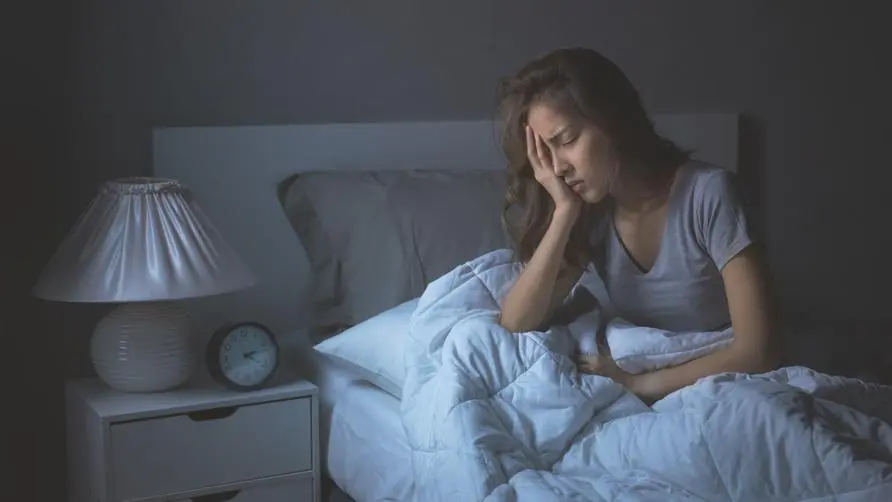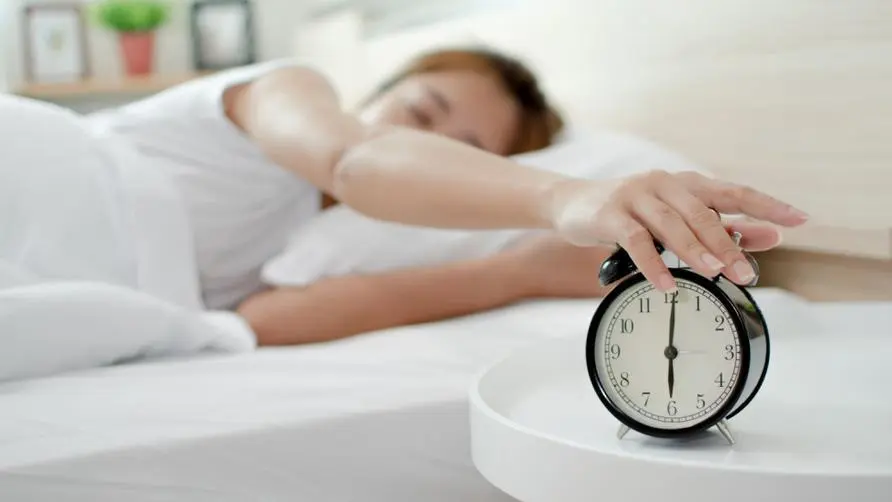Have "sleep problems" become the norm during the epidemic? Simple "6 steps" to improve sleep quality

The number of confirmed cases in the local area continues to increase. Although most people are currently suffering from mild symptoms, many people are still worried about the physical and mental impact of the infection. Anxiety and fear will only increase but not decrease. Be careful that “sleep problems” will have a more serious impact on your mental state. Many studies have shown that insufficient sleep is related to many health problems, such as high blood pressure, diabetes, obesity and other diseases. Therefore, if people feel that they often have insomnia, do not get enough sleep, or even have long-term sleep problems, they should actively adjust their lifestyle. , and consult a psychiatrist or psychological counselor to further improve your sleep state.
Is “lack of sleep” the norm during the epidemic? Is it related to both psychological and economic factors?
“Frontiers in Public Health” published a study that collected sleep data of 975 Bangladeshi residents during the pandemic. The analysis found that as many as 55.1% had a decline in sleep quality. According to the study, most of the subjects suffering from sleep disorders are women, those with poor health, those who are afraid of infection, and those who are anxious about the epidemic. Bangladeshi people’s anxiety and sleep disorders may interact with each other, making it difficult to calm down.
A meta-analysis published in “The Lancet” reported that 18% of 345,270 subjects from 39 countries suffered from significant sleep disorders; 31% of medical staff had sleepless nights every night. Studies have shown that sleep problems are associated with worse psychological conditions such as depression and anxiety, and that intervention through psychotherapy may be helpful for long-term decline in sleep quality.
Sleep problems not only interact with mental illness, but may also be related to personal and family financial problems. A Finnish study published in the British Medical Journal (BMJ) pointed out that more than 20% of the subjects had worsened sleep quality, and 6% of the subjects took more sleeping pills than before. In addition to the fear of diagnosis and anxiety about the epidemic, the factor most related to sleep disorders is “financial difficulties.” People with lower education levels, unemployed people, and low-income people are significantly related to insomnia, sleep disorders and other conditions.
The University of South Florida previously analyzed the sleep data of nearly 7,000 people, showing that sleep problems are not only significantly related to chronic diseases and mental illnesses, but may also lead to cardiovascular diseases. For every additional sleep disorder, the risk of heart disease increases by 54%; when different sleep problems occur, such as difficulty falling asleep, waking up in the middle of the night, and less than 6 hours of sleep per night, the risk of heart disease can increase nearly three times.
What should I do if I often wake up in the middle of the night and feel I haven’t had enough sleep? Expert: “6 steps” to improve sleep quality
Since a decrease in sleep quality may have adverse effects on health, Dr. Hadine Joffe, associate professor of psychiatry at Harvard Medical School in the United States, recommends that those with insomnia or sleep deprivation should try the following 6 measures in their lives to significantly improve their sleep quality:
Maintain a day and night pattern. For example, get up at 8 a.m. every day, including holidays. If you change the sleep time at will, it is easy to cause circadian rhythm disorder and reduce sleep quality.
Limit caffeine. Limit drinking to only about 1 cup of coffee or tea at breakfast, or drink decaffeinated beverages such as milk and soy milk.
Take a walk in the morning. After eating breakfast, you can try to go outside and walk for about 30 minutes. Exposing your body to the sun will help you wake up faster and help you sleep at night. If you have plenty of time during holidays, you can do aerobic exercise such as jogging instead.
Eat a light dinner. Consuming a high-fat, high-salt or high-sugar diet during dinner can easily lead to increased heartburn and affect sleep at night. Therefore, those who lack sleep should choose a lighter diet to reduce the burden on their body.
Turn off 3C products. Turn off the TV, computer, or cell phone 30 minutes before bed and replace screen time with reading a book, listening to soft music, or taking a hot bath.
Prepare the sleeping environment. Make it a habit to fall asleep at the same time, such as 11 p.m. Turn off or dim the lights and close the curtains before bed to make sure the room is cool and comfortable.
Joffe reminded that if the above steps cannot help improve sleep quality, you should immediately consult a physician to check if there are any health conditions (such as hyperthyroidism, sleep apnea, menopausal hot flashes, etc.) that affect sleep quality or sleep time, and treat them as soon as possible. Health problems are also one of the key factors in solving sleep problems.
Source:





